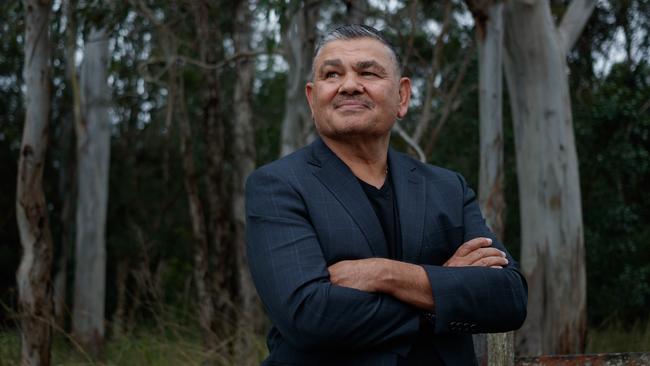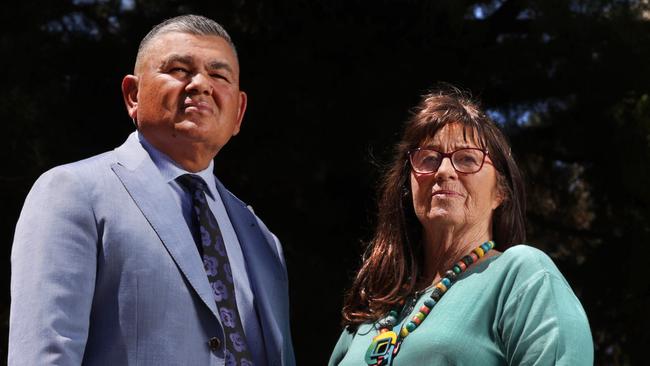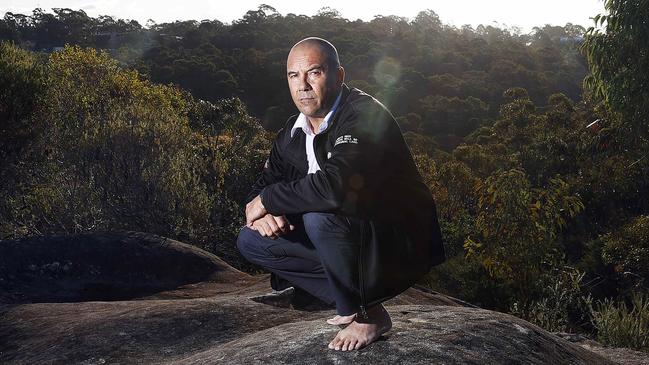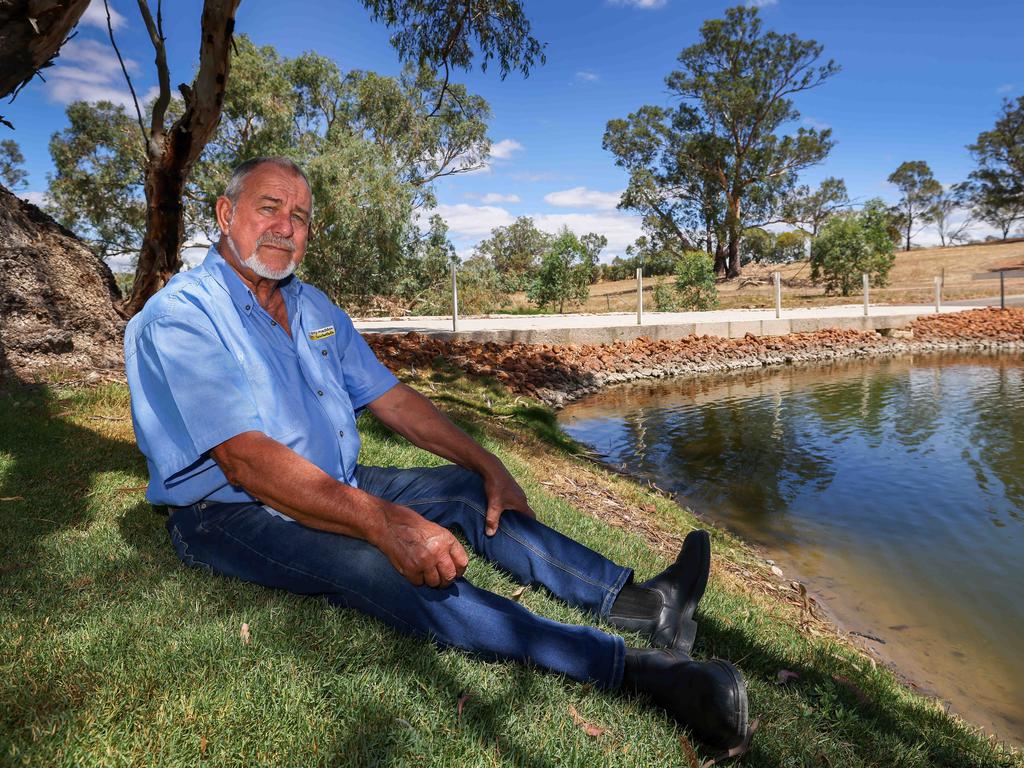‘Self-identifying activists undermining genuine Aboriginal democracies’, says Roy Ah-See
Wiradjuri leader Roy Ah-See, a former PM Indigenous policy adviser, says self-identifying Aboriginal activists are breaking apart a network of NSW land councils, threatening one of Australia’s few ‘effective Aboriginal democracies’.

Wiradjuri leader Roy Ah-See, a former prime ministerial Indigenous policy adviser, says self-identifying Aboriginal activists frustrated with “moderates” are breaking apart a statewide network of land councils, threatening one of Australia’s few “effective Aboriginal democracies”.
Mr Ah-See says activists with fringe ideals are establishing dissident groups to block developments and “delegitimise” the network of 121 land councils across NSW that are by law the representative bodies for Indigenous people in specific areas.
The former co-chair of the Prime Minister’s Indigenous Advisory Council has stepped in to help Orange Local Aboriginal Land Council through an organisational crisis that he says began when it refused to side with dissidents fighting Regis’s $1.3bn gold mine proposal near Blayney.
Orange Land Council warned then-environment minister Tanya Plibersek there was no evidence for the dissident group’s claim that the McPhillamy’s Gold Mine would disrupt a blue-banded bee dreaming story, but she disregarded this and blocked the mining giant’s proposal.
The ugly chapter had caused community division, Mr Ah-See said, and Orange Land Council has appointed an independent reviewer to assess complaints.
Mr Ah-See said self-appointed claimants were so common that land councils now used an acronym for them – SACs.
“These SACs are setting up their own groups and blocking big projects,” he said. “The land councils are audited annually, the members have to meet the three-part test for Aboriginality and the board is elected, but in some of these other groups it is just anything goes. We, the land councils, are the voice of reason here, yet we are the ones under attack.”
Orange Land Council chief executive Annette Steele told a convention of Aboriginal land councils in October that rogue individuals “bastardising” culture could destroy their authority if left unchallenged, a prescient warning given the strife since.

Forty-seven complainants including 22 of the Orange Land Council’s 220 members in April signed a no-confidence petition against senior leadership, alleging pervasive nepotism and conflicts of interest in the organisation, which they argued lacked transparency and accountability.
Orange Land Council pledged to subject itself to a review by commercial lawyer Reay McGuinness until the end of July. He was hired to investigate governance issues, member complaints and matters of accountability under scrutiny by disgruntled members.
Mr Ah-See said Orange Land Council’s success – it has more than 50 employees, most Indigenous – had contributed to tensions including over who should and could benefit from the organisation’s growth. However, he said the Orange Land Council was determined to air all grievances and have them resolved.
“This is the first time I’ve encountered a land council asking for an independent review of itself,” Mr Ah-See said. “What that says to me is that this organisation has nothing to hide. They want it all out in the open. Why would it call a review on itself?”
Mr Ah-See said Orange Land Council was concerned about recent nasty behaviour, mostly verbal attacks on Aboriginal women.

“A lot of this is about lateral violence,” he said. “It is perpetrated by, sadly, our men. It is against our women. Our older women are really fearful. These are verbal attacks. Intimidation, bullying, harassment – the land council has had enough and it’s calling it out.
“I’ve witnessed it myself, when our CEO Annette was subjected to it … You can’t intimidate our women. We won’t stand for it.”
Metropolitan Local Aboriginal Land Council chief executive Nathan Moran argued the slow collapse of land councils through regional NSW due to infighting, declining membership and funding woes was eroding the statewide system for Indigenous recognition.
“There’s only us (NSW) and the NT who have effective Aboriginal democracies where we (comprehensively) elect local land councils to represent us,” Mr Moran said. “But there’s been communities where local land councils are inactive and not functioning. It is not a good outcome. Communities have no one to speak for them, no form of representation, and it’s not actually effective. It leaves them behind.”
Mr Moran said land councils were being “set up to fail” based on current funding constraints, wide responsibilities and intense scrutiny under which they operated.
“We have the best opportunity to speak to blackfellas directly and allow them to elect their own representatives,” he said. “But when it comes to doing anything, to delivering something, we require resources that are adequate, reasonable. It’s a systemic problem we’re trying to address about land rights being adequately funded or resourced in equity or comparison to local government … it’s not fair, it’s not reasonable, it’s not equitable to set us up to fail every year, to be responsible life to death for our culture and heritage into infinity.
“I’m fearful that people might perceive that lack of funding, or some people struggling, as though the system doesn’t work, rather than looking into the actual, factual realities of our impediments.”
Ms Plibersek’s favoured dissident group, the Wiradyuri Traditional Owners Central West Aboriginal Corporation, has sought to discredit Orange Land Council and pushed for the Blayney gold mine site to be placed under federal heritage protection.
The provenance of their central evidence, the blue-banded bee dreaming, has been rocked by its resemblance to the writings of Alice Monkton Duncan-Kemp, who documented the dreamings and culture of the Mithaka people rather than the Wiradjuri, and the story’s disavowal by Orange Land Council and former Wiradyuri Corporation members.
One radical activist ardently opposed to Orange Land Council is Wiradjuri man Paul Towney, whose views align broadly with the blak sovereignty movement. He is currently before the courts facing a trespassing charge he has contested by arguing the land he occupied was taken illegitimately 200 years earlier.
Mr Towney hopes a victory in the courts would provide a legislative pathway to native title and has spruiked Indigenous land taxes as a method to form a sovereign Wiradjuri nation.







To join the conversation, please log in. Don't have an account? Register
Join the conversation, you are commenting as Logout